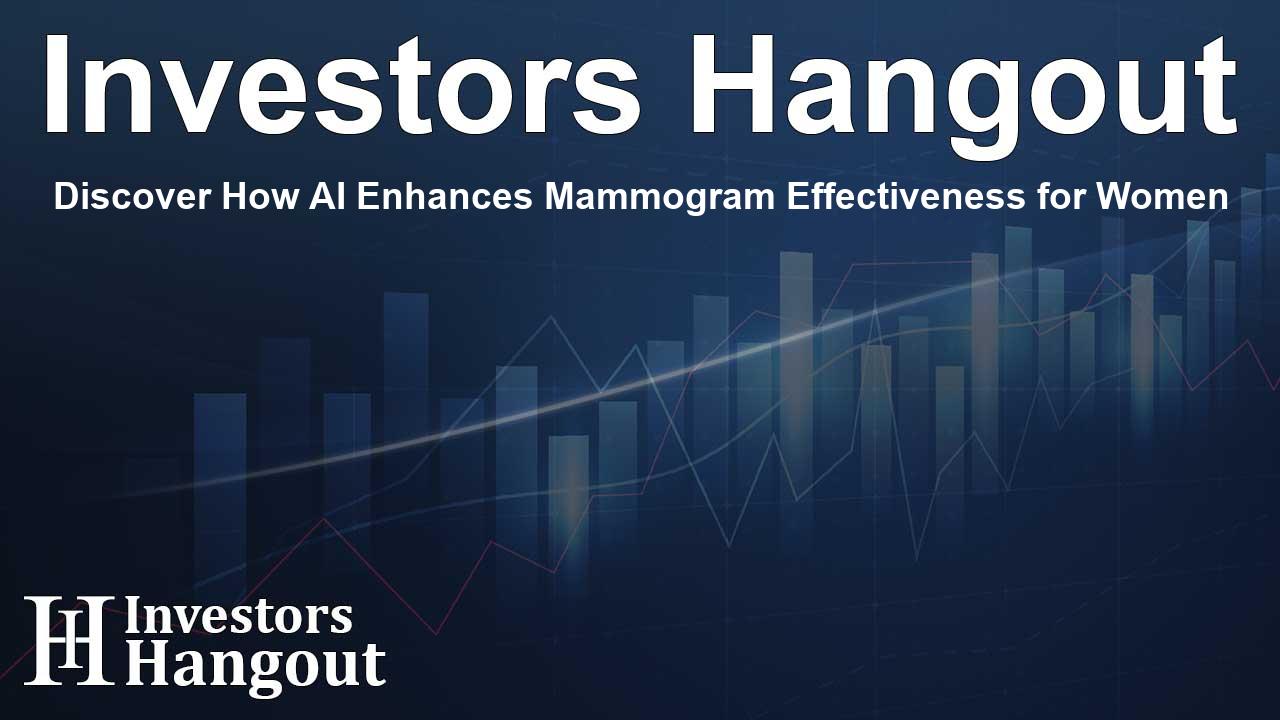Discover How AI Enhances Mammogram Effectiveness for Women

Advancements in Breast Cancer Screening Technologies
Mammograms play a crucial role in early breast cancer detection, yet many women are still not taking full advantage of these screenings. Recent studies reveal a significant lack of awareness regarding the advancements in screening technologies that could lead to more effective results and ultimately save lives. It’s important to spread the word about innovations in breast cancer screening that can reduce anxiety and make the process smoother for women.
The Role of AI in Mammography
Artificial intelligence (AI) is revolutionizing various fields, including healthcare. When it comes to mammograms, AI helps radiologists interpret results more accurately and quickly. Surgeons and diagnostic professionals emphasize that while routine exams are essential, being aware of technological enhancements can drastically change outcomes. Innovative tools like AI-assisted mammography enable doctors to identify potential issues with greater precision.
Barriers Women Face in Screening
Despite the availability of advanced screening techniques, many women eligible for mammograms are not participating in this lifesaving procedure. Research findings indicate that nearly half of eligible individuals aged 40 and above are missing their annual appointments. This situation could stem from several factors including fear, misinformation, or a lack of confidence in the screening process itself. Addressing these barriers is essential for improving screening rates, as knowledge about AI’s advantages has not penetrated all demographics.
The Benefits of AI-Assisted Mammography
AI technology provides numerous benefits to both healthcare providers and patients. Some of the advantages include:
- Increased accuracy in results leading to better outcomes.
- Fewer instances of false positives, which can cause emotional distress.
- Heightened confidence levels among radiologists while diagnosing.
- Reduction in the number of patients needing follow-up imaging, decreasing anxiety and uncertainty.
Healthcare experts note that women with dense breast tissue may experience higher instances of follow-up imaging due to potential ambiguity in readings. AI serves as a supportive tool by offering a secondary evaluation, thereby lessening the need for additional appointments.
Understanding Risk Factors for Breast Cancer
In addition to incorporating groundbreaking technologies, women must also recognize the various risk factors associated with breast cancer. These could influence screening decisions significantly. Individuals are encouraged to be aware that risk factors extend beyond just hereditary elements. Factors such as age, personal health history, and lifestyle choices can affect an individual’s risk level. Community outreach and regular consultations with healthcare providers can enhance women's understanding of their risks and personalized screening needs.
Key Risk Factors Women Should Know
Some risk factors that every woman should consider include:
- Having dense breast tissue.
- Experiencing menopause after the age of 55.
- Using specific types of oral contraceptives.
- Beginning menstruation before age 12.
- Having the first child after age 30.
Educating oneself about these factors can empower women to engage more actively in their health and screening choices. Knowledge equips women to collaborate effectively with their healthcare professionals regarding individualized screening plans.
Access to Resources and Regular Screenings
With advancements in technology and educational resources available, women can better navigate their breast health. Healthcare providers encourage individuals with relevant risk factors to consider specialized clinics. These facilities can assist in determining the necessity of additional screenings or alternative imaging methods such as MRI and ultrasound. Mediating the conversation between patients and providers can yield a clearer path regarding what screenings are beneficial.
Free resources like health risk assessments can further guide women in understanding their individual risk levels. It’s crucial to utilize available tools to stay informed and proactive about breast health.
Frequently Asked Questions
Why is AI important in mammography?
AI enhances the accuracy of readings, leading to faster and more reliable results while reducing the chances of false positives.
What risks should women be aware of regarding breast cancer?
Key risks include family history, dense breast tissue, lifestyle factors like age, and reproductive health.
What percentage of women are unaware of mammogram benefits?
Significant numbers indicate that many eligible women do not fully understand the benefits of mammogram screenings.
How can women improve their awareness of breast health?
Women should seek information from reliable health sources and consult healthcare professionals regularly.
What should women do if they have multiple risk factors?
It’s advisable for women with multiple risk factors to consult with specialized healthcare providers for tailored screening recommendations.
About The Author
Contact Ryan Hughes privately here. Or send an email with ATTN: Ryan Hughes as the subject to contact@investorshangout.com.
About Investors Hangout
Investors Hangout is a leading online stock forum for financial discussion and learning, offering a wide range of free tools and resources. It draws in traders of all levels, who exchange market knowledge, investigate trading tactics, and keep an eye on industry developments in real time. Featuring financial articles, stock message boards, quotes, charts, company profiles, and live news updates. Through cooperative learning and a wealth of informational resources, it helps users from novices creating their first portfolios to experts honing their techniques. Join Investors Hangout today: https://investorshangout.com/
The content of this article is based on factual, publicly available information and does not represent legal, financial, or investment advice. Investors Hangout does not offer financial advice, and the author is not a licensed financial advisor. Consult a qualified advisor before making any financial or investment decisions based on this article. This article should not be considered advice to purchase, sell, or hold any securities or other investments. If any of the material provided here is inaccurate, please contact us for corrections.
